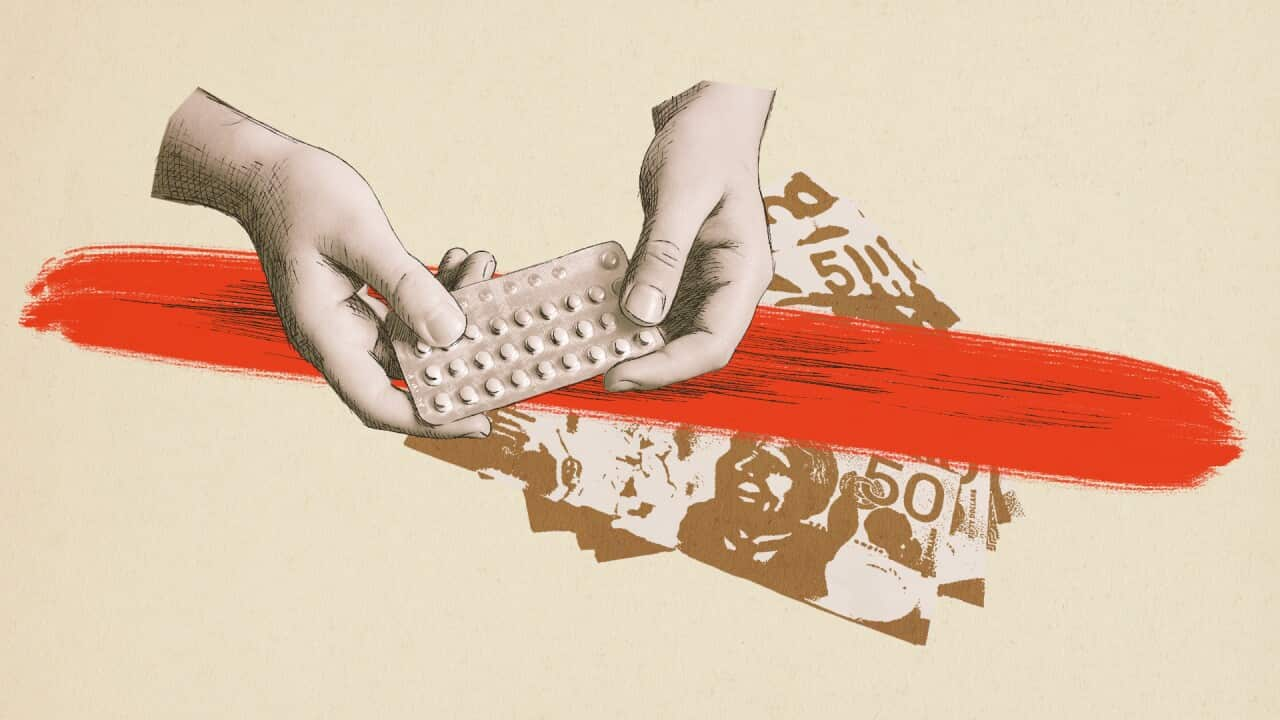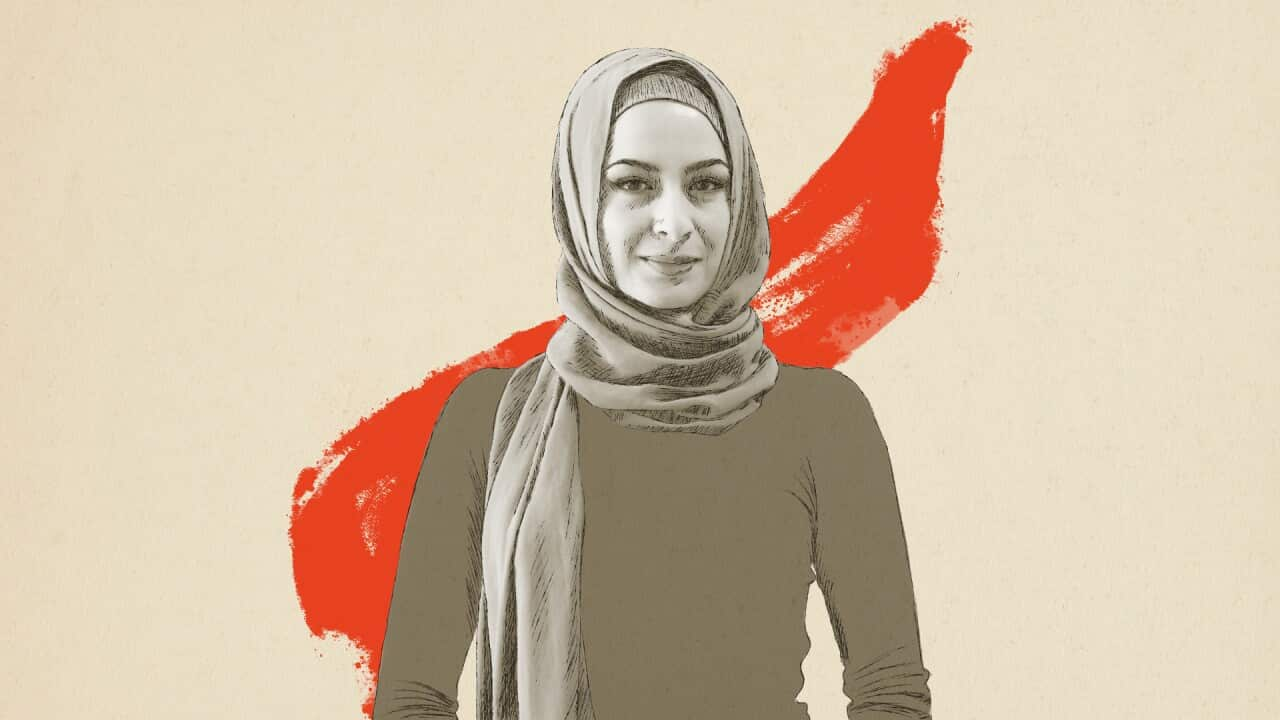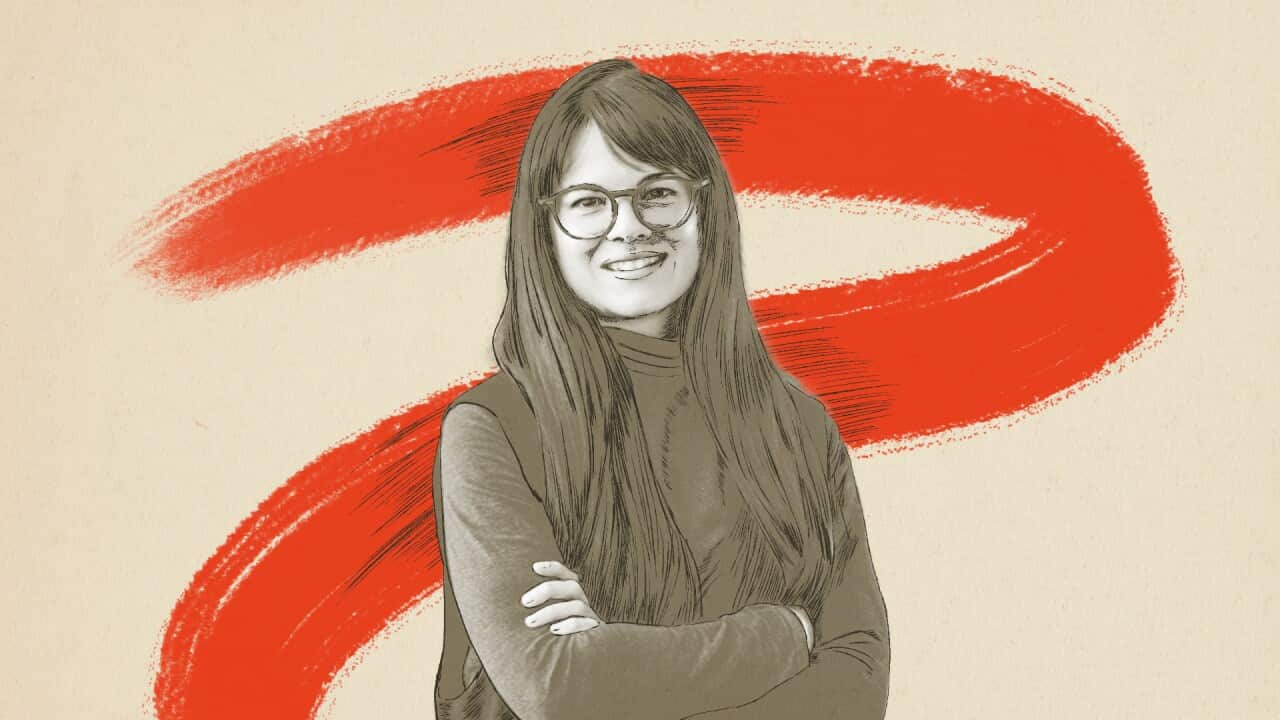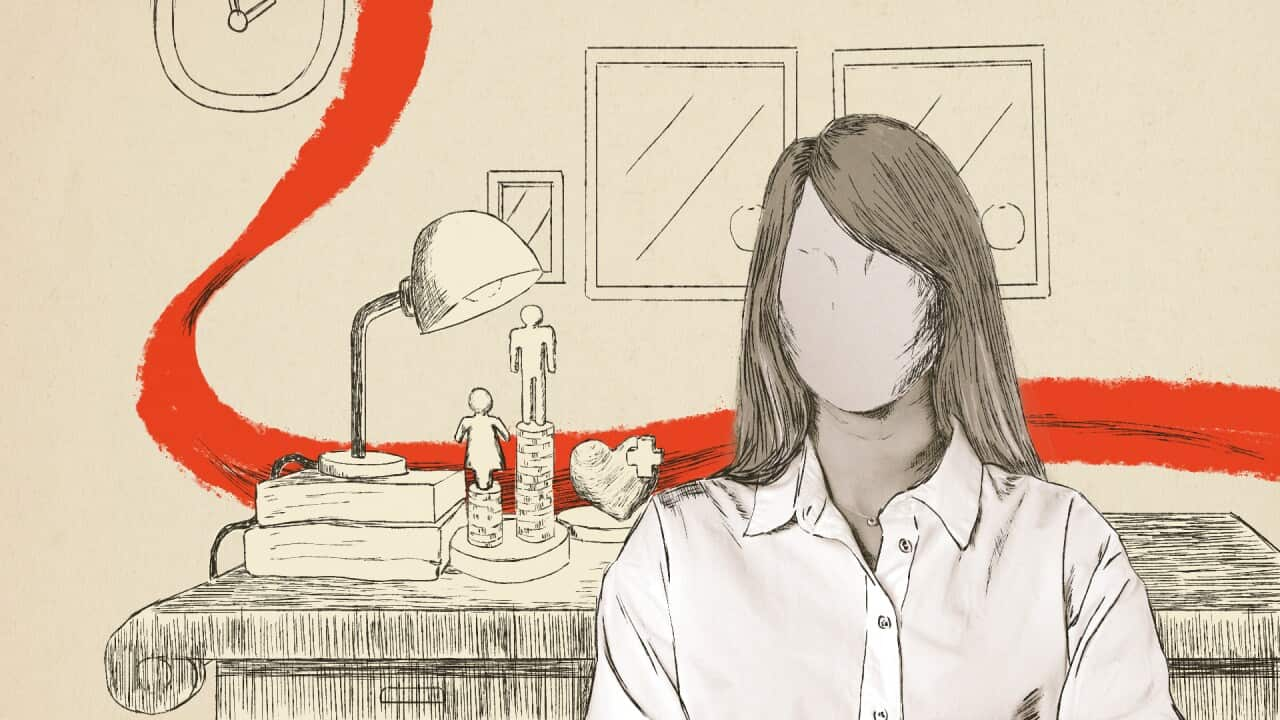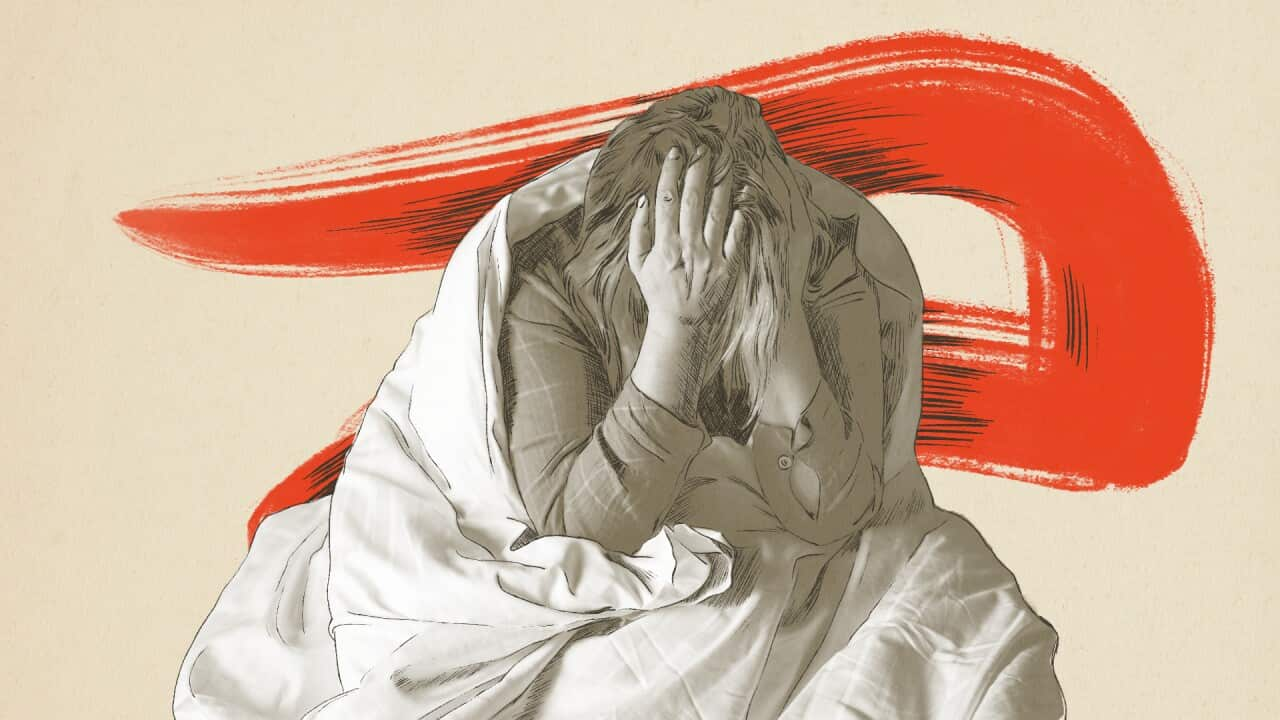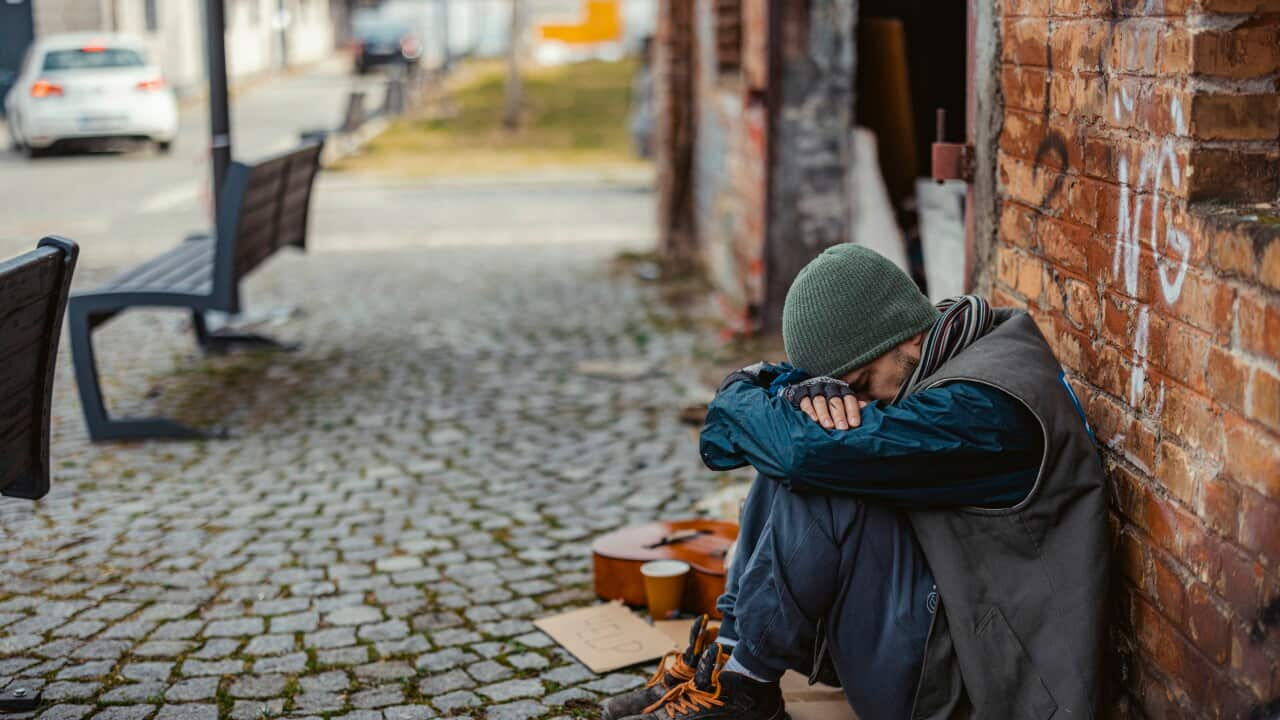TRANSCRIPT
“It's that absolutely unconscious bias around First Nations women accessing abortion services. It's like do not judge women who are sitting in front of you, asking for support.”
“It didn't really hit me until my partner and I decided that we wanted to have a family, and I was told that I couldn't. The same considerations and questions that you would ask a heterosexual couple, you need to be able to ask a gay or lesbian couple.”
Abortion has been decriminalised in every state in Australia, and the federal government's latest budget committed funding to improving contraceptive care.
But what are the prevailing barriers for those seeking safe and accessible sexual and reproductive healthcare?
In this episode of 'Hysterical', we look at the ongoing obstacles confronting women and LGBTQI+ people accessing sexual and reproductive health care in Australia.
Western Australia became the last state in the country to decriminalise abortion in March this year, however, some criminal repercussions still exist for providers of abortion care.
So is the fight really over?
Lily had a medical abortion in 2017 when she was 20 years old - which can be performed up to 9 weeks of pregnancy and involves taking two combined medications.
She describes it as an experience that felt both physically and psychologically complicated.
“My abortion was a transformative experience and something that I'll never forget. I think I wasn't really prepared for the physicality of it. My doctor said that the experience itself, people respond really differently to the medicine, and so she said to me, you might not feel anything or you might end up in the ED needing a blood transfusion. So I guess I had just kind of no idea what it was going to be like.”
Lily says she was utterly unprepared for the level of pain she experienced, as she suffered heavy period bleeding for about six weeks following her abortion.
But she also says she was offered very little knowledge about the psychological side affects either.
“When you have an abortion, they don't really name the sudden huge drop and changes to your hormones after an abortion. Again, I think was really missing that education about the effects that that hormone drop can have on your mental health and how you might feel, you might feel really low and not have a lot of energy. And none of that was discussed with me.”
Lily says, despite coming from a privileged background, she felt angry about the lack of information she was provided.
“I felt really lost and isolated and angry and, yeah definitely angry. I didn't see my experience reflected anywhere. And I was also pissed off because I'm a white, cisgendered educated middle class woman. All the things that mean you have good access to abortion were ticked, but my experience was still shit. So it made me think, okay, well, I haven't necessarily experienced all of these other barriers, but I'm sort of meant to feel grateful that I was still able to access abortion. And that's kind of the end of the story when it's not.”
For those from marginalised groups, a lack of information is often compounded by unconscious bias or racism.
Melanie Briggs is a Wodi Wodi Dharawal Gumbayngirr Balaanj and a Senior Endorsed midwife at Aboriginal-led women's health centre Waminda in New South Wales' Shoalhaven area.
She was the first endorsed Aboriginal midwife in New South Wales, and is currently the manager of Waminda's Birthing on Country program.
She says Aboriginal women in the south coast confront barriers of access and affordability around abortions.
Women have to drive an hour or more to access a surgical abortion, for instance, while midwives at Waminda are only allowed to provide medical terminations without access to accompanying medication such as pain relief.
But Melanie says one of the most significant issues is the unconscious bias many Aboriginal women describe in interactions with GPs.
“We just want to be treated the same as every other person is treated. They do, they do a selection criteria for women who are wanting to have a medical termination and they're going through all these questions with these women, are you sure you want to do this? And they do this checklist. And it's like the woman wouldn't be sitting there in front of you asking you for what she wants if she didn't know what she wanted. This has happened in the past. Women have gone to a doctor after they've spoken to me or another midwife about where she wants to go with this pregnancy and she's decided, no, I'm going to have a termination of pregnancy. And then goes to the doctor, and then the doctor doesn't understand that informed choice.”
Melanie says there's been many instances where terminations haven't proceeded or Aboriginal women haven't been appropriately informed.
She says racism and unconscious bias is to blame.
“Will they follow up with their bloods and their ultrasounds after they have their medical termination? Will they call emergency? Will they do this? Do they ask every other woman about that? I don't think they do. So it's that unconscious, absolutely unconscious bias around First Nations women accessing abortion services. It's like, do not judge women that are sitting in front of you asking for support. And yes, it does happen. And I've seen doctors decline women requesting a medical termination under those conditions because they didn't believe that the follow-up would be appropriate.”
While Western Australia became the last state in the country to decriminalise abortion earlier this year, there are still criminal consequences for some providers.
Bonney Corbin is Director of Advocacy for MSI Asia-Pacific - Australia's leading abortion advocacy and provider organisation - as well as Chair of the Australian Women's Health Alliance.
Ms Corbin says abortion in Australia is still largely over-regulated and over-legislated.
“But there's many other aspects of abortion that still sit within criminal codes, and that's around the people who provide abortion, like doctors and nurses and midwives and Aboriginal and Torres Strait Islander health workers. That's around people who assist people to have abortions like doulas, like when you support a friend to access abortion or you might pick up medication for them. And that's around where people have abortions, how they have abortions.”
So what barriers does this create for people accessing an abortion?
It can can depend a lot on your visa status, financial situation and an abortion postcode lottery, as Ms Corbin explains.
“So it could be that they want to access it, but they can't find it from a local GP or local service provider. Or it might be that they can find a GP or a service provider, but they can't actually get the medication without ordering it to be delivered to their house because there's no local pharmacy that will stock it for them. Or it could be that they have a GP and they have a pharmacy but they don't have the money to pay for it, because the cost of abortion is still prohibitive for many people today. And for some women to find one day off to one week off, depending on the type of abortion care that they choose to have, that can be almost impossible.”
But the longer people delay this choice, the more expensive an abortion can cost as the procedure becomes more complex.
So what does this mean then for those on temporary visas?
Ms Corbin says for women removed from their communities, like refugees or asylum seekers, there are a number of added barriers and layers of discrimination to confront that minimise choice following an unplanned pregnancy.
The Australian government has a policy deed with private health insurers for those on temporary visas, which means private health insurers only need to provide a certain standard of care.
“And our Australian government is not providing a high standard of maternity care, including pregnancy options in that deed. So what that means for people on temporary visas or people who have access to that particular private health insurance is that if they are pregnant, whether they become pregnant in Australia where they're pregnant before they come to Australia, their pregnancy options in their first year after they technically arrive in Australia are fairly limited. And that could be maternity care more generally around ultrasounds, prenatal care, a whole lot of different pregnancy care related things, or it could be pregnancy options. So there's pregnancy options of abortion, adoption care, kinship care, or parenting. And it means that the onus is really back on that person to find their own solutions. And for so many of those people, it is so prohibitive that it's easier for them to travel to the country where they have citizenship and are more likely to be able to afford or access healthcare than to stay. “
A range of pregnancy care is excluded from this private health insurance, including specialist consultations and check-ups, as well as some hospital fees.
SBS contacted the Department of Home Affairs for comment in relation to this issue.
You might recall from episode 2, Assistant Minister for Health Ged Kearney, acknowledged the issue was complex for people on temporary visas but didn't say the government would look to change visa requirements around accessing health care.
“And of course, it's not only refugee women, it's international students that come here who are women. I do understand a lot of people in our community that can't access the mainstream health system, so on the Women's Health Advisory Council, I have made absolutely certain that those groups are well represented. We have some wonderful women who are advocating for them. We'll be looking very seriously at how we can really increase access. There are some wonderful people in the community that do provide care, and I work very closely with them.”
Delaram Ansari is Research Advocacy and Policy Manager at the Multicultural Centre for Women's Health.
She says exclusion from such services has dire consequences for migrant and refugee women.
“Within our work, when we hear from migrant and refugee women and their experiences of their pregnancy, often there's this sense of not having the full autonomy that they should have around their reproductive rights when they experience so many barriers within the system. So that's one of the main things we see and this lack of control and autonomy that they deserve and need for their health. This is why we really need to embed intersectional analysis in our policymaking to recognise and also address how gender inequality intersects with other forms of discrimination such as racism and migration related inequalities.”
Feeling safe and heard is key, especially for minority groups.
For First Nations women, organisations like Waminda ensure women have full autonomy in their decisions, as Melanie describes.
“They're given options and they're given choices, and they're not made to feel bad about those options and choices. It's basically, this is your options. These are your options. You can always come back and do it when you're ready. There's no pressure. It's when the woman is ready to receive that contraception, especially long-term. We're just offering a service and if the women want it, they'll use it.”
But it's also about fighting the stigma and shame around abortion.
Lily and her friend Sarah established the Abortion Project in 2021, a peer support network they started to prevent others from feeling isolated like they had.
“I was quite grateful to have one of my best friends going through that experience so we could share it with each other and discuss it and support each other. And for me, basically, I felt so seen suddenly because there was Sarah asking me all these questions and what my reflections were and what I would've done differently and how I would approach stuff in a new way. And I felt like suddenly my experience was there was some value to it. And we thought that something that we had both experienced was that feeling of isolation and something that we had both experienced was this exchange of support. And so starting a peer support group was kind of a natural conclusion to those two things that we'd identified.”
Isolation is the recurring theme described by Lily when talking about her abortion.
She says it's definitely a result of ongoing shame around the issue, leading to a lack of healthy and open conversations around abortion in Australia.
“ A lot of people who come to our groups haven't told barely anyone about their experience, which is surprising in a way, given that we are in a pro-choice country and all that kind of thing. But yeah, I think the stigma and the shame prevails and it is silencing, which is isolating. Australia is generally a pro-choice country or the statistics would suggest that, but I think on an interpersonal level, it's a really different story, so people just feel too isolated and ashamed to talk about it. And the fact that there is no space to do that outside of a one-on-one dynamic with a psychologist or psychiatrist or whatever.”
Even for permanent residents in Australia, accessing an abortion can clearly be a challenge.
Not every GP provides this care, as Professor Danielle Mazza explains - director of the Sphere Centre of Research Excellence in Women's Sexual and Reproductive Health in primary care.
“We know, for example, that only about 11% of GPs around the country provide medical abortion. So if you are a trainee GP working in a practice trying to learn as much as you can about this area and your practice doesn't provide medical abortion, how are you going to learn about it? You can learn about it in theory, but it's a bit different to seeing how it's actually provided in practice. So these are some issues that we need to address in our training program to ensure that all GP trainees get access to training in both medical abortion and contraception because they are the providers of the future.”
And despite government funding to women's health in the May budget, there are also issues around accessing affordable and safe contraception.
In the May federal budget, the government committed $49.1 million to introduce two new Medicare Benefits Schedule [[MBS]] items enabling extended consultation times, for those living with endometriosis and complex gynaecological conditions.
The changes will be rolled out from July 1 next year, and will also cover conditions such as chronic pelvic pain and polycystic ovary syndrome.
As Vice president of the Royal Australian New Zealand College of Obstetricians and Gynaecologists, Dr Nisha Khot welcomes these changes but says it's only a first step.
“ And so these women often when they have chronic pelvic pain also requires specialist ultrasound scans to examine, to scan the pelvis and find out what the cause for their pain might be. The gold standard treatment or the gold standard for diagnosis of endometriosis now is actually an ultrasound rather than a surgical procedure. And so those ultrasounds take time and currently there isn't the rebate that should be available anywhere. Rebates for pelvic ultrasounds are lower than things like scrotal ultrasounds, for example. And then these scans are not just your standard pelvic scans. These are scans that take time and expertise and there is actually no specialised rebate or a higher rebate for these kinds of scans.”
There are also remaining inequities in rebates for procedures typically specific to a female body, with Dr Khot comparing rebates for a vasectomy against an IUD insertion.
“Actually the rebate for that is very low. It's something like $75, whereas if a man was to go and get a vasectomy, which is similar procedure, it takes similar amount of time, sometimes can take less time. That rebate is somewhere around 200 plus dollars. So there's a huge difference between what we are treating for women's contraception versus men's contraception, I guess is the best comparison to put it as. So there are rebates, but the rebates are very low and they need to reflect the time and effort that it takes to put in an IUD for example.”
In fact, Dr Khot believes contraception should be free.
She said it's problematic that the copper IUD currently doesn't have a rebate attached to it and is quite expensive for women, as the hormone-containing IUD isn't the most appropriate contraception for all women.
“My other thing was the fact that the federal budget hasn't said anything about free contraception. And I think that is something that the government, federal government should look at very strongly because that is a good public health measure and most of the contraception that is available is available for women. And so ultimately contraception does fall to women to organise. And so it would make sense for the government and many countries have made contraception free and Australia should do that as well. “
Professor Danielle Mazza agrees that contraception should be free of cost in Australia.
But she welcomes the initiatives around increasing training for primary care practitioners to support delivery of long-acting reversible contraception, which she said was part of Sphere's recommendations to the Senate Inquiry on Universal Access to Reproductive Healthcare, as well as around a dataset for sexual and reproductive health.
When asked why contraception isn't free in Australia, a spokesperson for the Department of Health and Aged Care said in a statement that the Government supports access to contraception through Medicare Benefits Schedule rebates for relevant services, including telehealth consultations, subsidies for the cost of medicines under the Pharmaceutical Benefits Scheme and through public hospital funding.
The federal government also pledged to conduct a gender audit to review Medicare Benefits Schedule items in the May budget.
Professor Mazza says this is essential because procedures like an ultrasound are vital due to the vast information they can provide.
“The rebate system under Medicare goes through a regular review every few years, but it hasn't really had a gender lens on it to date. So if you want to get providers to provide a service, they can't provide that service at a loss, otherwise they won't do it. And IUD insertion requires training. It requires equipment and it requires time. And so our GPS and other providers need to be adequately reimbursed for that and even perhaps incentivised to do it.”
Advocates working in women's sexual and reproductive health echo these calls for more accessible, or at best free, contraception and abortion care - particularly since people on temporary visas typically do not have access to Medicare.
Ms Ansari says the MCWH do, however, welcome the federal government's $5.6 million budget commitment to their 'Health In My Language' program which provides in-language information for culturally and linguistically diverse communities on sexual and reproductive healthcare.
“One of the main barriers is financial costs associated with contraceptive options, but another biggest barrier is lack of information in language for migrant and refugee women. So they can make the choice about what contraception is suited to them and what they would like to actually use. So I think that piece around lack of information in language is really important as well as that cost barrier.”
LGBTQI+ communities also confront stigma in accessing contraception.
Dr Joe Latham is an Australian Research Council Fellow at Deakin University and an expert on trans health outcomes.
“Getting contraception is really difficult for men and those sort of issues around sexual health and trans men who have sex with men getting appropriate healthcare, including PrEP [[anti-viral medication for HIV prevention]] and contraception and finding doctors who are capable of dealing with those not particularly complex medical issues, but the sort of social stigma that's attached to. Yeah, I think that's definitely something to work on.”
But these issues go beyond contraception.
You might recall Ash from episode two, sharing their story of being misgendered repeatedly in a doctor's appointment, where she was seeking a referral for a speech pathologist.
“Oh, well, pretty much every gender label they could use was used. That was wrong. It was all referring to us in the masculine. And I'm sitting there and I'm in a non-binary T-shirt and a skirt, and I'm like, how obvious do I have to make it?”
As a trans woman, who also identifies as asexual, Ash was also initially denied appropriate sexual health care due to assumptions made by her practitioner at the time.
“The gender services themselves, the doctor that they had me seeing knew that I was asexual, and he's like, well, we don't have to do the STI checks. And I'm like, why? And he's like, because you're asexual. And I'm like, yeah, that deals with emotions and not sex. And he just looked at me stunned.”
The LGBTQI+ community also confront barriers when it comes to other areas of reproductive health, as Dwone Jones, known as DJ, experienced firsthand.
DJ discovered they had a bleed and was diagnosed with a rare form of lower rectal cancer in 2011.
Five days later, he was put on chemotherapy and radiation because of how aggressive the cancer was - but there was no conversation about whether he and his partner Jay wanted to have children, and thus freeze his sperm.
DJ's sperm became sterile following the chemotherapy... meaning he and his partner's fertility options were limited without their prior knowledge.
“There was never any conversation about not being able to have kids, or it was never asked. And of course, I think my partner and I were so hearing that news and not knowing if you're going to live or not, you just, you're not thinking about freezing sperm or anything like that. So we weren't advised that I wouldn't be able to have children or that I suggested that I should do something with my seed, et cetera.”
DJ and his partner were unable to have children, following two miscarriages using Jay's sperm.
He says this lack of conversation around their reproductive future felt defeating... but DJ is reluctant to describe it as bias.
“I'm very careful to use bias. I think what we're dealing with is a healthcare system that has a lack of experience with dealing with the LBGTQ across the board, right? So what I will say is that I think it was about poor processes, poor policies, right? I think this is about a lack of awareness, a lack of education, a lack of understanding. And what that is a reflection of is the oppressive nature that we have experienced as a community. So when you've been oppressed as a community, your professionals and et cetera don't necessarily have the understanding or knowledge for our community.”
Genea Fertility Unit's Fertility specialist, Ying Li, works closely with cancer patients and LGBTQI+ couples, and said the issue isn't exclusive to same sex couples, but their access to sperm and eggs is more limited.
“Certainly when I first started doing this amongst the oncology communities, so people who were giving these medications and drugs, it wasn't thought of as a priority. I think where it's more difficult for the BTQ plus community is their access to gametes [eggs and sperm] are already limited, I think just by the very nature of the situation. So to have that extra hurdle put in front of them does mean that their ambitions and desires to have a family is sort of hampered.”
He said the definition of fertility has only recently widened to include LGBTQI+ people, and has long been based on a "heterosexual typical family paradigm".
This has prevented LGBTQI+ couples from accessing Medicare rebates for IVF, as they were classified as 'untested fertility' rather than 'infertility'.
Mr Li said the American Society for Reproductive Medicine guidelines changed in 2023 to include couples "who need any kind of assistance to fall pregnant", but it's still based on the clinician's interpretation of the definition.
“Certainly for me and a lot of my colleagues, we follow that definition now, which means that we no longer make LGBTQ couples go through all of these other hurdles. I think if we see them and we make a clinical judgment that the most appropriate therapy is IVF and often it's not. But if it is, then we don't put them through the hurdles and we just claim Medicare based on this latest definition.”
The Executive Officer of Rainbow Families - a national organisation established to advocate for LGBTQI+ parents and families - says DJ's story is unsurprising.
Ashley Scott says it's clear from working with other LGBT parents that systemic barriers present an issue when starting a family.
He says this can include difficulty in accessing Medicare rebates around IVF, as well as issues around inclusion, in particular fears around discrimination in attending mainstream antenatal classes or parenting groups.
“So when accessing healthcare in general for LGBTQ plus families, I guess the starting point is usually fertility. And so for queer people to create families, it's very rarely straightforward. We often need, whether it's donor sperm, donor eggs, surrogacy, some kind of assisted reproductive technology in there.”
Ashley even experienced this kind of exclusion, particularly around the language used to refer to he and his partner.
“In New South Wales for example, still the health system only has the capabilities of mother and father. So I remember when I was registering my daughter so I could attend new parents groups, they said to me, which one of you wants to be the mother, you or your husband? And I mean, that was in 2012 and that still happens today. That kind of discrimination that's systemic and from government services.”
A spokesperson for the New South Wales Department of Health said 'NSW Health is committed to an ongoing process of strengthening inclusivity and belonging of LGBTIQ+ people in the health system'.
They added that an ongoing landmark health strategy is looking to 'improve the experiences and outcomes of LGBTIQ+ people in the health system', particularly in relation to how data is collected.
Like DJ, Ashley believes the issue is around a lack of awareness and education.
“For queer people, if we're having kids when we have kids, it's really intentional. It's something that we have to work really hard for and it's not an easy process. And quite often there's a discussion between the people having that baby of who's going to carry the baby, whose egg you're going to use, who sperm are you going to use, and often one of those parties has to sacrifice having a biological link or carrying that child. So I find our families really want that inclusion and that connection to the process more than maybe a heterosexual couple might, but they're just not getting that inclusion from some healthcare providers.”
DJ feels as though greater representation in community and government is the answer.
“We need to have more gay and lesbian politicians. We need to have more people at a level that does policy. They need to look at who are they putting on their advisory councils? What are they doing before they make policy? What is the process of that before you start to affect communities in a whole?”
And from this, he hopes for greater inclusion.
“Situations and stories like this hopefully will be brought to the surface more so that people understand that the same considerations and questions that you would ask a heterosexual couple, you need to be able to ask a gay or lesbian couple.”
Inclusion is key for other minority groups seeking safe and holistic sexual and reproductive healthcare.
Melanie knows Waminda offers a space where Aboriginal women have autonomy over their bodies and choices... particularly when it comes to accessing contraceptive and abortion care.
“So I feel like we talk to women a lot about natural therapies because we know that the Westernised medicines obviously introduced and we've had to be forced into utilising those methods. And so we just try and inform the women as best we can and talk about the effectiveness and just be honest, I guess. And women usually will either tell us that they want us or they don't want to use it. And again, we're just offering a service and if the women want it, they'll use it.”
In our next episode of 'Hysterical', we take a look at the issue of delayed diagnoses.
Why are women and LGBTQI+ people more likely to report a delay in diagnosis and treatment for various health issues... and is ignorance around certain health conditions to blame?
